On measurements and tools, on matters of security, on plenary, on piracy, on being human in tech. Day 2 of RIPE 91 and it's time to bring out the Working Groups!
Plenary, plenary, plenary!
Luuk Hendriks (NLNetLabs) was first out of the gate today at 91 talking about Rotonda, a tool for collecting and analysing routing information that operators can use to analyse and monitor their networks, doing their own custom filtering with the NLnet Labs-brewed Roto language. Do as Luke says! Try it out and help to improve it by sending test data!
Radu Anghel (TU Delft) gave us a tour of the various and variegated Route Collector projects. After a look at the manifold methods by which these projects draw their routing info from vantage points around the Internet, he went over some of the downsides and drawbacks of each. Noting the key challenge that BGP is still evolving even as we try to analyse it, he ended with suggestions of how to improve Route Collector infrastructure to get more efficient and accurate measurements.
Christoff Visser (IIJ) gave us a smoothly-spoken story about stuttering. More to the point, about how Apple's Wireless Direct Link protocol was causing regular stuttering in his wireless network connection, what caused it, and how he got it fixed. With Apple themselves having remained stiff lipped on the matter - Christoff asked if they should really be deciding how we do our networking.
After a bit of Tuesday morning caffeination, it was on with the plenary. Putting on a show of coordination and synchronicity over the passing of the mic that you will be unlikely to see repeated in our time, three presenters - Suresh Krishnan (Cisco), Mirja Kühlewind (Ericsson), and Éric Vyncke (also Cisco) - talked about what’s new at the IETF and ongoing cooperation across the RIR communities. Andrew Campling, “IETF Enthausisat”, asked for more people with operational experience from the RIPE community to go get their feet wet at the IETF. Do as Andrew says, community!
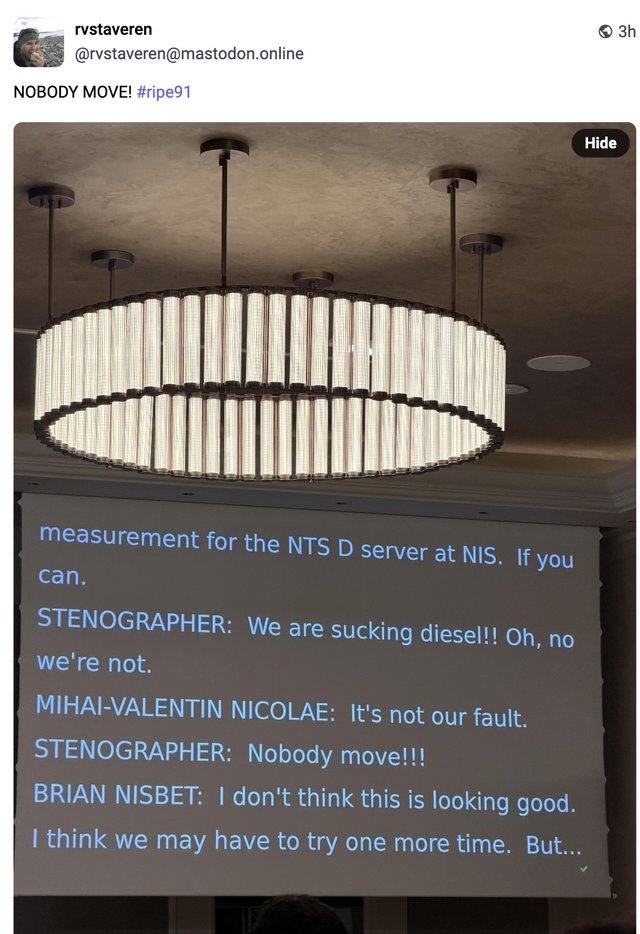
Next up, Shreyas Konjerla (TU Delft) - boldly braving the stage at his first RIPE meeting - asked whether NTP clients are always right. Tom Hill loved the presentation, then asked a very technical question 😣. Then more people asked more very technical questions! And then even more newcomers - Calin Olaru, Horia-Andrei Botezatu, Mihai Nicolae, Serban Orza (all from TU Delft) - lowered the average age in the room significantly. They gave a live demo of NTPinfo - and application for measuring NTP server accuracy - ably struggling through the technical hitches that are a rite of passage (as Brian Nisbet pointed out) for anyone’s first demo at a RIPE Meeting.
Post-lunch, even MORE plenary! Antonios Chariton (Cisco) - BGP zombie hunter - turned a thousand eyes to the topic of BGP stuck routes, those living-dead links doomed to roam the ASes thanks to router update bugs. Following up on research presented back at RIPE 90, Antonios talked about monitoring the phenomenon through public routing data - shout out RIPE RIS! - and how he and his colleagues responded to the community's call for an IPv4-centric take and longer-term monitoring. The outcomes: BGP clock (yes, you can now learn the time from BGP); and the Stuck Route Observatory in Cisco's ThousandEyes.
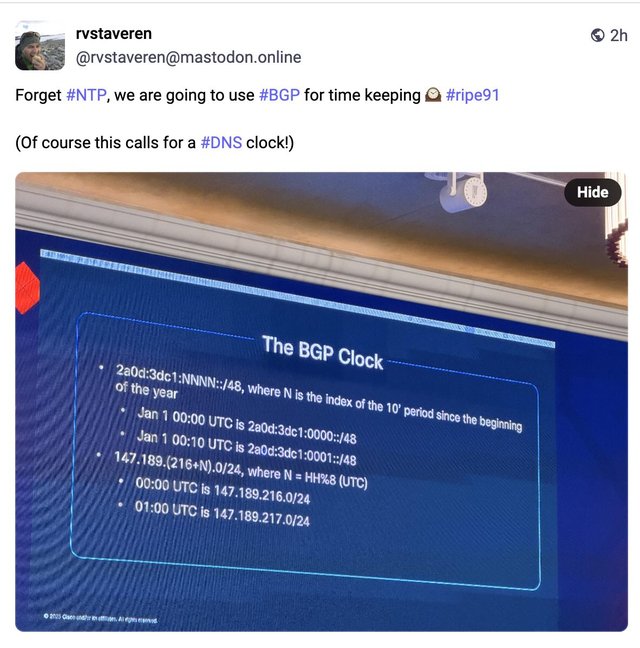
Branimir Rajtar (5x9 Networks) brought us up to speed on how he and his colleagues squeezed as much performance as possible out of an x86. By separating control and user planes, tightly tuning the datapath, and carrying out a whole bunch of other efficiency-boosting measures, they managed to raise throughput seven-fold from 160 Gbps to 1.2 Tbps without the need for any specialised hardware.
Then things got Meta. Mike Joseph (Meta) showed us PON in the datacenter - a new approach to datacenter management and console connectivity using Passive Optical Network tech. He told us why they chose PON, gave a quick primer on the fundamentals with details of Meta’s deployment, and explained how automation manages the end-to-end lifecycle - from barcode scanning of incoming PON assets to ongoing operations.
Measurements and tools... and pirates!
Geoff Huston started the MAT session looking at network measurements in the dark. Talking about how network-level measurement has all but vanished in the age of full encryption and application-level services - with traffic increasingly hidden behind layers of TLS, QUIC, relays and proxies - Geoff showed how the network has become a “dumb pipe” and the traditional vantage point for understanding user behaviour is effectively lost.
Raffaele Sommese (University of Twente) critiqued Italy’s Piracy Shield system, demonstrating how its sweeping domain/IP blocks intended to curb football streaming ended up disrupting legitimate web services, lacked transparency, and failed to effectively tackle piracy. Then Remi Hendriks (University of Twente) shared new findings on anycast catchment stability, revealing that both IPv4 and IPv6 routes can shift far more often than expected - with IPv6 especially prone to churn - urging operators to track these dynamics closely instead of assuming a stable anycast view.
Ties de Kock (RIPE NCC) presented a new way to query and analyse BGP data from the RIPE RIS project - introducing experimental Parquet-format datasets for RIBs and updates. The 18-month trial aims to make raw routing data easier to explore with SQL and data-science tools like DuckDB, replacing slow, heavy MRT parsing with compact, query-friendly files. He invited operators and researchers to test the prototype and share feedback on the schema.
Willem Toorop (NLnet Labs) ended the session by asking who’s really running email on today’s Internet - moving beyond static MX record studies to analyse actual MX query traffic seen at Quad9’s public resolvers. His findings show that while big names like Outlook, Google and Yahoo dominate, a surprisingly large share of email still flows through smaller or local providers, challenging assumptions about total centralisation.
On very public secrets (and other matters of security)
The Security WG did what it says on the tin. Co-chairs Brian Nisbet and Tobias Knecht ran the room (with Markus de Brun dialling in), and we opened with list discussion, policies, and Brian’s reflections on a Europol cybercrime conference in The Hague - useful training, firm views on phones-away etiquette, and the perennial reminder that law enforcement works best with a clear map to our registry and database. That segued neatly into a quick tour of NIS2 interpretations, from “new obligations for organisations” to “mostly about enforcing existing protocols,” with RIPE NCC flagging ongoing chats with the Commission and Europol encouraging the crowd to keep helping train investigators.
Yury Zhauniarovich (TU Delft) gave the next talk - The File That Contained the Keys Has Been Removed - walking us through just how many long-lived secrets still sit in public places waiting to be found, which - alas - turns out to be “more than you’d like”. Next, in the talk from Thomas Daniels (DNS Belgium & KU Leuven), we moved on to RegCheck a registry-side play to catch malicious domain registrations in something approaching real time; think fewer false positives and far less time for attackers to make hay.
On being human in tech
Maribel Aburto started the Diversity, Equity, and Inclusion session with a warm and deeply human account of her journey from Chile to Ireland (by way of the United States and New Zealand), a migration that forced her to confront language barriers, the absence of a local support network, and balancing work and family life. These challenges eventually became the catalyst for launching her own fully-remote creative agency, which today consists of a diverse group of six women based all around the world. Maribel reflected that for her leadership is rooted in empathy, flexibility, and a practice of presence — caring rather than controlling.
Keith Mitchell, AKA Kei followed with an equally personal and reflective story, combining lessons learned from a long and successful career in network engineering with other experiences arising from their unique gender identity. Kei also reflected what it meant to navigate the world with a hearing impairment, and shared a few thoughts on ageism within the tech community.
A big thanks to Denesh Bhabuta for volunteering to run the session and to our speakers for helping to light a path for others and keep RIPE an open and inclusive community! Also, remember that we have a mailing list (diversity@ripe.net) where you can discuss these topics between RIPE Meetings.

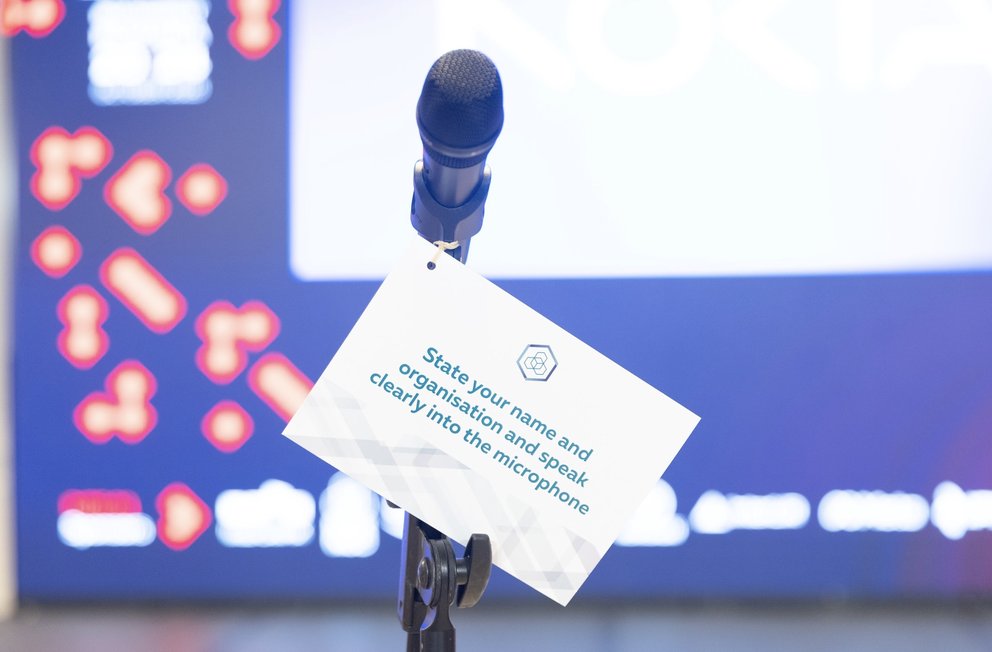
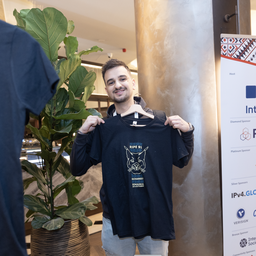
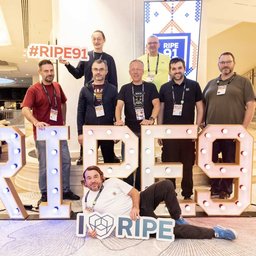

Comments 0